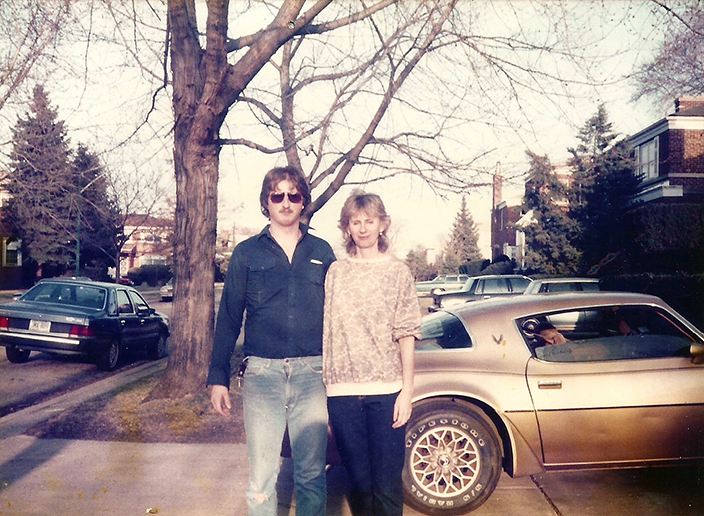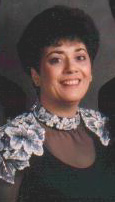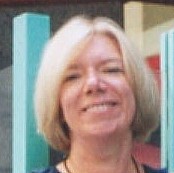 |
||||||||||||||
 |
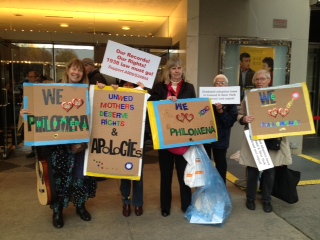
New York activists bring attention to sealed record laws
The Baby Scoop Era: Unwed Mothers, Infant Adoption and Forced Surrender, by Karen Wilson-Buterbaugh. An expose of unethical and coercive adoption industry practices during a short period in American history known as the Baby Scoop Era (Post WWII-1972). Paperback/Kindle.
Mother of adoption loss Lynn Franklin's obituary. The New York Times writes that her memoir, "May The Circle Be Unbroken: An Intimate Journey Into the Heart of Adoption" is "an account of her experience as a birth mother who relinquished her son for adoption in 1966 and reunited with him 27 years later. More than a memoir, the book serves as a guide as it considers multiple aspects of adoption from the perspective not only of the birth mother but also of the adopted child and the adoptive family." The adoptive father of her son donated money that turned into the Donaldson Institute study.
Adoption Used to Be Hush-Hush. This Book Amplifies the Human Toll.
Joyce Bahr and her son, Ed
Mothers forced to surrender their babies demand an apology.
The Latest: Pope denounces Ireland's forced adoptions.
4 facts about post-adoption contact
Miami hospital allowed tribal police to kidnap newborn baby, parents say
Remarkable film of Magdalene laundry women and nuns surfaces.
New Oregon law makes adoption records easier to access than ever.
Adoption information Registry: New York State Department of Health
InterCountry Adoptee Voices (ICAV) book review:
Cardinal Vincent Nichols, Cardinal for England and Wales, Archbishop of Westminster and President of the Bishops' Conference of England and Wales, apologizes to mothers for the Catholic Church's role in 'forced' adoptions. ITV documentary airing in England on November 9, 2016:
"A grief reaction unique to the relinquishing mother was identified. Although this reaction consists of features characteristic of the normal grief reaction, these features persist and often lead to chronic, unresolved grief. Conclusions: The relinquishing mother is at risk for long-term physical, psychological, and social repercussions.
Australia National Apology for forced adoptions
Considering Giving up your
Baby for Adoption? A Catholic Parish honors mothers who were unwed and forced to surrender. Mothers in need of healing an old wound.
No Matter How Adoption is Done, Grief Remains for Mothers. Lorraine Dusky blogs on findings from the new study on openness in adoption by the Evan B. Donaldson Institute, March 2012
It's not unusual for an Open Adoption to become closed but it is a nightmare for natural mothers who are often hoodwinked by adoptive parents who really didn't want open adoption in the first place.
Daily Kos: Adoption Apologies Expected in Australia - Why Not in America?
Australia's Roman Catholic Church Apologises for Forced Adoptions
Apology for Forced Adoptions - ABC Queensland - Australian Broadcasting Corporation (ABC) 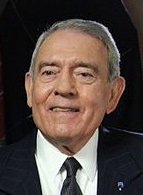
Reporter Dan Rather covers the issue of mothers forced to surrender for adoption. Adopted or Abducted
Breaking News for Women's Rights:
Australian National Research Study on Past Adoption Experiences and Practices
Australia's PM Julia Gilliard's Apology, March 2013
March 2012 Article and Video, Former news anchor and journalist Dan Rather reports on forced adoptions of the past around the globe. Mr. Rather and his news team attended the senate hearings to learn the news that mothers would receive not only apologies but compensation.
March 2012 - BBC News Video: Australian Senate calls for apology on forced adoptions
Canadians are calling on their government to probe forced adoption practices of the past:
Government of Ontario urged to consider inquiry into coerced adoptions:
From The Globe and Mail: Former 'unwed mothers' call for public inquiry into forced adoptions:
Salvation Army of Canada launches review of coerced adoptions in maternity homes
The film, A Girl Like Her by Ann Fessler
Video: Unlocking the Heart of Adoption by Sheila Ganz
Video: Coercion and Single Pregnant Women by Joe Soll
Link to Korean Unwed Mothers Support Network. In August of 2002 the UK gave natural/birth parents the legal right to request an intermediary service with regard to children who were adopted before the 30th of December 2005. Both the adoptee and the natural parent must be at least 18 years old. Adoptees had already received rights in 1975. UK's Natural Parent Network: Thirty years after the UK and Wales opened records of adult adoptees, a 2005 UK Study by Triseliotis, Feast, and Kyle concluded in their representative work that almost all birth mothers were pleased that their sons and daughters had established contact, or that they had searched for them, and 94% added that the experience was positive. They found 97% of searching adoptees stated that meeting their birth relatives made no difference in their feelings for their adoptive parents.
Professor Elizabeth J. Samuels study, "The Idea of Adoption: An Inquiry into the History of Adult Adoptee Access to Birth Records" concludes laws were enacted to protect the confidentiality of adoptive families, not birth or natural families.
She has reviewed surrender papers and finds no evidence women were given legal confidentiality. Link to her website: http://law.ubalt.edu/template.cfm?page=664 2006 Study by the foremost think tank on adoption issues, "Safeguarding the Rights and Well being of Birth Parents in the Adoption Process", finds those who choose adoption for their infants do not have their rights sufficiently addressed in U.S. Law and Practice.
Healing the Birthmother's Silent Sorrow 2010 Study, "The Unique Loss: The Experience of Birth mothers in Open Adoption" - Phillipa Castle. Joyce
Bahr is a mother who surrendered in 1966 and was elated to be reunited with her son by a feminist social worker at Lutheran Child and Family services Chicago in 1986.
She has a strong relationship with her son and she has four great grandchildren. She is the founder of Manhattan Birthparents Support Group
(group leader for 12 years) and former Regional Director for the American Adoption
Congress. An activist and volunteer worker, she organized several protests for Open
Records in New York, marched from New York to Washington D.C. in 1989, and presented
workshops on "Coercion and Relinquishment, A Women's Issue", at American
Adoption Congress conferences. In November of 2005 she became the President of New
York Statewide Adoption Reform and continues to fight for passage of adoptee rights legislation. She like many mothers in the reform movement wants not only rights for natural mothers who have surrendered, but apologies and reparations for the injustice perpetrated against women. Unwed Mothers Made Neither Decisions Nor Agreements Before the 1970's, when social mores changed and the stigma of illegitimacy lessened to a large degree, surrendering mothers made no decisions or agreements. The stigma of illegitimacy, based on religious codes of morality, meant that unwed mothers under the age of 18 and some over the age of 18 were subjected to the decisions, wishes and desires of religious authorities, adoption professionals and parents. We have to remember that prior the Women's Liberation movement in the 1970's society was patriarchal and chauvinistic. How easy it was in a patriarchal and chauvinistic society to dictate to and punish women pregnant out of wedlock and to manipulate them to surrender. In her book, Out of Wedlock published in 1954, Professor of Casework Leontine Young of the School of Social Administration at the Ohio State University acknowledged that the unwed mother's parent was often the person making the decisions. If the parent decided to leave with the daughter and the baby so be it. The following quote is from page 42, part of a Chapter entitled The Mother-Ridden: "With some mothers it is literally what she, the mother decides because she rarely consults her daughter either and assumes, in most cases correctly, that the girl will do as she was told. Usually this kind of mother then continues to a discussion of plans for the baby, deciding what she thinks should be done. Even though her daughter is present, she ignores that fact and proceeds as if she were the only one concerned. One is some times tempted to inquire who is having this baby? Certainly it is clear that the girl as an individual does not exist for her mother and that the mother regards her as a personal possession which for the moment has slipped out of her hand. If one inquires of the girl in such an interview what she thinks, the usual response is, 'I'll do whatever my mother says.'" More mature young women who came from other towns, on their own, were free from the dominance of parents, but because they were unmarried they were expected to do what was considered the best thing and give the baby up. Professor Young's book, Out of Wedlock does not mention the words, "confidentiality" or "anonymity." The author does state: "These people have no rights." Still to this day birth/natural mothers have no rights and neither do birth/natural fathers who need to search and heal. Empowerment to search came in the 80's or early 90's, but first parents and adoptees have done this largely on their own and the process remains frustrated by sealed records in the vast majority of states. Adoptees in these states have not been given a right to unrestricted access to their OBC. Only 4 states assist them in their search. Yes, mothers in the USA should receive apologies and compensation just as Australian mothers have. Before the 1970's unwed mothers were undermined by social workers, psychologists and psychiatrists who diagnosed the behavior that lead to their pregnancy as mental illness. Out of Wedlock and Ricky Solinger's book The Girl Nobody Loved: Psychological Explanations for White Single Pregnancy in the Pre-Roe v. Wade Era. 1945 to 1965 both demonstrate that white mothers were labeled as maladjusted and neurotic. In Out of Wedlock Young refers to unwed mothers on page 50 in The Mother-Ridden chapter: "They do not have a poor relationship with men; they have no relationship at all. For such a girl, the man is apparently a necessary biological accessory who serves only one purpose--to make her pregnant--and then is of no further interest or concern." Back in those dark days, the authorities went to extremes to vilify and psychoanalyze women who found themselves pregnant outside of wedlock. It was a time before women had wings and could stand up for themselves and say no. However today, birth/natural mothers and fathers will continue their fight for their liberation from outdated and punitive laws and from authorities who fabricate the truth. Searching Helps First Mothers Heal by Joyce Bahr, guest blogger at First Mother Forum The Promise of Adoption, Not a Promise of Confidentiality by Joyce Bahr Carole L. Whitehead, Legislative Liaison for Unsealed Initiative and wife/mother/grandmother. Adoption reform activist, graduated college at the age of 44 with a career as a paralegal and now a certified tumor registrar. Has openly worked for open records by meeting with legislators, appearing on TV, radio, and has had published many letters to the editor. Took part in first March on Washington, D.C. Ran workshops at triad adoption conferences as well as led a support group for birthparents on Long Island for many years. At the age of 18, was sent to an unwed mothers' home on Staten Island. Searched for and has been reunited with her son since 1985. Went to his wedding along with her husband and her other children. He has been to theirs. Helped to reunite many mothers and their surrendered children. Email: CAROLE401@aol.com What is a birthmother? There are so many misconceptions and variables whenever that word "birthmother" is uttered or spewed forth and with such disdain that the word can actually cause someone to gag. The word connotes fear, as in the fear of the unknown. Ask any adoptee about their unknown birthmother and see the reaction on their faces, a reaction of the unknown ghostly woman/girl/child who gave birth to them and then tossed them away with the trash. The adoptive parents fear the birthmother as well. See them cringe when their adopted children raise the issue of their birthmothers. The birthmother is the person who had to keep the secret so that no one would ever know about her hidden hideous past as society demanded. Who invented the words birthmother/birthfather/birthparent and why? It was coined more than 25 years ago by those powers that wanted to disassociate these soon to be childless mothers from the children they had to surrender. It is really a derogatory term after all. The term denied respect to us and lowered our self-esteem to the point where it no longer existed. We were promised that we would forget our so-called "unwanted" children that were tossed out with the trash. In keeping with that frame of mind, Gov. Pataki signed into law on August 6, 2002 replacing the phrase "natural parent" with "birth parent" in each respective section of the domestic relations law, the social services law, the insurance law and the surrogate's court procedure act. This was kicking around the Assembly since 1995 at the urgency of adoptive parents who felt stigmatized by the use of "natural parent" and their feeling that they were then "unnatural". The justification behind that is that the National Conference of Commissioners on Uniform State Laws specifically states in its Uniform Adoption Act that it does not refer to a child's parents at birth as the "natural" parents because to do so might imply that it is "unnatural" to be an adoptive parent(s). Again, the fact that we were the natural parents is no longer considered acceptable. We should only be looked upon as the birth parents so that adoptive parents can believe in the fallacy that after birth, we are rendered moot. In reality, the adoptive parents can now be referred to as the "A" parents and the natural parents as the "B" parents delegating themselves alphabetically as the primary instead of secondary parent. Gov. Pataki stated that the bill does not, and is not intended to, affect in any way the legal rights and responsibilities of children or parents. Indeed, both sponsors (Sen. Balboni (7th S. D.) and Rep. Towns, (54th A. D.) have assured him that under no circumstances should the alteration of language envisioned in the bill be construed as intending to either strengthen or diminish the position or standing of any parent or child relative to any other person in any past, current or future dispute before the courts. Carole Whitehead, Guest Blogger at Adoption Under One Roof: Birth Mothers Punished Before and Continue to Bear the Brunt of NYS Legislators http://ouradopt.com/adoption-blog/sep-2009/guestblogger/guest-blog-birthmothers-punished-and-continue-bear-brunt-nys-leg
Dr. Judy Kelly, PhD, LMHC, OPAC, Post Adoption Trauma and Reunion Counselor and Facilitator of Manhattan Birthparents Support Group for 11 years until 2010 has experienced the trauma of both mother and child. Her own healing journey was initiated when she made the decision to find her son. She has researched the long term effects of relinquishment on mothers for her masters thesis: http://jkelly.110mb.com/ Judy Kelly, Counselor in Post Adoption Trauma and Reunion: http://jkelly.110mb.com/parc.htm To order a copy of Evelyn Burns Robinson's book The Hidden Grief: Cynthia Christensen's book Restorative Grief: A Guide to Healing from Adoption Grief Experience of Mothers Who Surrendered to Adoption by Joyce Bahr
My awful grief experience and the confidentiality lie Lorraine Dusky, author of the first memoir from a birthmother, Birthmark, published in 1979, and a second, Hole in My Heart, has written and spoken out for open records in numerous publications since then. She and her daughter were reunited in 1981, and continue a warm, loving relationship. Ms. Dusky is also the other of other books on women's issues, and has been an award-winning magazine writer and editor for such publications as Town & Country, Working Woman, and McCall's Don't Talk to Me about
"Privacy" The key argument against open records today is that women like myself -- I gave my daughter up for adoption in 1966 -- is that we do not want to be reunited with our children, that we have gone on to make new lives for ourselves and we do not want a painful reminder of the past to haunt our future. Nothing could be farther from the truth. Our present is haunted by the unknown, the lost child most birth mothers desperately seek. The vast majority of us -- a whopping 95 percent, according to a variety of statistics -- welcome -- pray for is more like it -- a reunion with a child relinquished for adoption. In states that where birth mothers can ask not to be contacted, the numbers who request such "privacy" are even fewer. Instead of hiding, we look for our phantom children at shopping malls and ice skating rinks, at baseball games and playgrounds, in the faces of anyone who is the right sex and age. We look our missing children everywhere, day after day, year after year, until we are reunited. Our desire for reunion is beyond a simple idle wish; our desire for reunion is primal. As the Italian saying goes: Blood seeks blood. The main opposition to open records comes from the National Council for Adoption, a small but well-funded group of adoption agencies. What, they ask, about women who were raped? Surely they don't want to know these children, now adults, and isn't that enough reason to keep the records sealed? But Concerned United Birthparents, which lobbies for open records, has scores of rape victims as members. They understand that the child is, after all, wholly innocent, and has the right to her or his history, good or bad, just like the rest of us. And no, the wishes of the few should not dictate the common good. Furthermore, the papers we signed made no mention of such a "promise" of secrecy. How could the state make such a pact with us anyway? Certainly a contract by two parties -- the state and the birth mother -- over a third party who has no say at the time or at any time in the future must be invalid. And doesn't that sound like the legal contract of slavery? The argument against such "privacy" was best stated in a 1980 Model Adoption Act issued by the then Department of Health, Education and Welfare: "There can be no legally protected interest in keeping one's identity secret from one's biological offspring; parents and child are considered co-owners of the information regarding the event of birth." And it added: "The birth parents' interest in reputation is not alone deserving of constitutional protection." But these words went unheeded, then, and sad to say, are still ignored in most places today. As for whose "right" is paramount, this information is so basic that to call this a "right" diminishes its magnitude, for if we don't have the ability to know the truth about ourselves, we have nothing. Instead of truth, we have duplicity. Instead of freedom, we have enslavement. Instead of knowledge, we have bewilderment. For any number of reasons, so adoptees choose not to seek this information; likewise, some birth parents seek anonymity from their lost children. But what matters is that they make that choice for themselves, and that the state not, by force of sealed records, make that choice for them. December 4, 2002 Ms. Dusky's article in Newsweek: The coming of the Victorian Era meant unwed mothers would be less likely to raise their Children New York State's history of forced adoptions began in Elmira in 1890 at the Anchorage Institute for Wayward and Erring Girls. Evangelical Christian women operated the Anchorage as a kind of religious labor or mission. These same women were also members of the Women's Christian Temperance Union. They wanted the right to vote, but because of their religious codes of morality viewed out of wedlock pregnancy not only as a sin but a crime. They were trained as police matrons and their job also included incarcerating women for various other small infractions. "Inmates" of the Anchorage, i.e. those young women who found themselves pregnant before marriage, were confined for an 18 month period of strict religious rehabilitation. They were expected to stay even after they gave birth, however, some chose to escape. Their babies were usually given to an unrelated family or taken to a home before being adopted. Before the Victorian Era, out of wedlock pregnancy was not seen as a traumatic event. The Anchorage's managers were more concerned about the stigma of the bastard child than the stigma of an out of wedlock pregnancy and never developed programs to help their inmates cope because they felt their sin deserved punishment. Minnie's tragic story is the only personal account of an Anchorage inmate published on the internet. The Anchorage closed its doors in 1920 when trained social workers began operating maternity homes. This piece of social history is found either in the Journal of Social History or the Chemung valley Historical Museum. http://www.jstor.org/discover/10.2307/3787287?uid=3739832&uid=2129&uid=2&uid=70&uid=4&uid=3739256&sid=47698743934137
What It Is Really Like to Lose Your Child to Adoption -- I Was Told I Would Forget 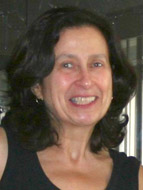
I lost my newborn son to adoption the day he was born, Sept. 15, 1960, never to lay my eyes upon him, count his precious fingers and toes, or tell him I loved him. I found him 43 years later due to critical medical information that he did not know. If not for that would I have dared to disturb his life? In between that time: I married, had three other children; worked in the medical field, as a programmer; was undiagnosed with Lyme disease until so ill, I thought my life was over. Thus, I became involved with Lyme and tick-borne disease when finally diagnosed. Becoming aware of the complexity and controversy, I dug in. I met with Legislators in Albany and the NYS Department of Health, assisted with an NIH study, worked on a three year CDC prevention study, a member of the Dutchess County Legislative Tick Task Force, a board member of "Stop Ticks On People" (www.stopticks.org), chairperson of the Hudson Valley Lyme Disease Association, much more including patient support and prevention education. Upon finding my son, I was shocked at my roller coaster of emotions, false beliefs of society, and injustice. Then like with Lyme, I dug into the deep dark abyss about adoption, researching, reading, etc., I joined unsealedinitiative and once again found myself lobbying for a cause even closer to my heart! I am LUCKY, I found him before I died! Sometimes I feel as if, these things happened to me for a reason. I believe it is our responsibility to leave the world a better place for our having been here. Yes, I was unmarried, pregnant and very scared. I was so alone, there was no one to talk to. I had shamed my mother and my father and at almost seventeen years of age I was a worthless human being. Adoption it was to be, "one healthy, newborn" and my parents desperation to get rid of the problem, "MY SON"! No one ever asked me how I felt, no one asked me why, or if I'd choose adoption. HEY he was my flesh and blood, my baby not yours. What about my feelings! Well, I had to pay for my "sin" of getting pregnant out of wedlock. A life sentence. Did I make atonement by making an infertile married couple happy? I had no counseling, I didn't know any better, I didn't know what I was doing. No one knows how it is to be a birth mother until it's too late. And the scar remains forever imbedded in our hearts, guts and souls. I will never forget the pain and NEVER forgive the injustice. I felt my precious baby growing and moving within me, but knew I was not allowed to be my baby's mother. The pain was so unbearable that I tried not to think about how much I loved my baby, and tried to remain as detached as it was possible. "I was told I would forget." My mother told me I was ruined, that I would not be good for any man. I, an honor student was not even worth their spending money to send me to college. My Mom was under such stress, about taking me away and staying with me, so I felt as if I had to protect her; she seemed so fragile so as an oxymoron she became my responsibility. I was so scared, I dared not ruffle any feathers, I behaved, I asked no questions and did as I was expected to do. What was going to become of worthless me and my baby? School started back home, OH MY GOSH I was missing school! Someone might realize I was pregnant! Then the visit to the doctor and I was starting to dilate. So, on the morning of the day, I was to lose my baby forever, Sept. 15, 1960, I was taken to the hospital where they started to do so many scary, nasty, unexpected things to me. An injection made me kind of amnesic -- I wasn't aware of anything except for the moments of the birth. I saw the big light and felt them pressing so hard on my ribs and abdomen trying to force my baby out. Then there was nothing...I finally awoke alone in a big cold room. It felt so EMPTY and ALONE. I felt my stomach -- my baby was GONE; O my God, O my God! Was my baby OK? Could I hear my baby cry? Where was my baby? It was over and I was supposed to forget that anything ever happened. I was never allowed to see or hold my baby in my arms, count his precious fingers and toes or kiss his tiny head to let him know I loved him. A nice nurse got into trouble for letting me know I had an 8lb 1oz baby boy. I was asked if I took anything during the pregnancy -- OMYGosh was he okay, would anybody want him if he wasn't. I was scared, I behaved, I asked no questions, I signed the papers, and they took my baby. He was whisked away, I never was to see or hold him. My father was coming down to bring us back home. I was told I would forget! How selfish of me, I was leaving my baby behind, I was deserting him to an unknown fate.
The current joke of confidentiality for the birthmother, no one cared about me, I was told I was never to disturb the family who adopted my son. I lost him forever, to complete strangers, he was theirs not mine. He and his children, forever until eternity would bear their name. They would hold him in their arms. "I was told I would forget!" In solitude, I suffered and cried every night for what seemed to be an eternity. I do not know how I made it though the time when I knew the adoption would be finalized but I did. Then I shoved this loss down as deeply in my soul as it was possible. Every once in awhile around his BDay, the Holidays, traveling on a plane, going through where he was relinquished or anytime at all that pain would poke its way up -- I'd look around for my precious son, what did he look like? Where was he? Was he loved? Was he OKAY? "Lies, lies, I was told I would forget" When a baby dies, you can mourn, and you know where your baby is buried. But when you lose your baby to adoption, you are alone with no one to share your loss, you are not allowed to speak of "IT", your baby is out there somewhere...MIA! IS MY BABY, MY CHILD OKAY -- PLEASE... "I was told I would forget" No one had done anything to assure my precious child's security, not my parents, not myself, and not anyone else. It was close your eyes and let some stranger handle this precious life to chance. To wit, no one even noticed that his adoptive mother lied about her age. I never knew if he was happy, healthy, and/or loved. I never had the security of knowing if they could offer him a better life than my family (his biological family) could have done. Did God watch over him? My son and I were both blessed that he was placed with loving parents and I honor their memory for cherishing him. But, I was the one who made the supreme sacrifice to give his parents my flesh and blood, my son. He bonded to them and his loyaltiy is to them. My pain, their pleasure, my loss, their gain. Is this the basis for building a family, on the grief and regret of a mother? My situation lacked charity and justice. It was my choice to make -- I had no choice, what choice would I have made? The life of my son, was cut out of our family, out of my life, it was unnatural and it was wrong. No one can ever convince me otherwise. "I was told I would forget" When I finally found my son, it was like being there again, but now I had the comforting joy of having the weight of the world lifted off of my shoulders, and I'd be able to die in peace. I felt as if G-d had forgiven me. Well maybe G-d did, but my mother didn't as she reminded me that I ruined her life! Everyone else was happy for me and the BIG BAD SECRET that I had been hiding for over 40 years was over. WHAT a relief -- like a "Gay" coming out of the closet. To my complete shock my other children were happy to have another brother, my friends and family were happy, even my mother is happy now. At times I want to scream from the highest mountain, but that won't help; nothing will erase what time has set in stone. I need the pain to end, will it ever end? Lies, lies, "I was told I would forget"
My Story 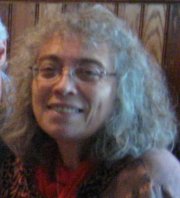
There were not many options for a pregnant unwed woman in 1968. Going home was impossible with 5 younger sibs, one terminally ill with a blood disease to which we had already lost a brother. And what would Mom and Dad think... I lied to my young man so he could go off to college unfettered. Birthed alone with no where to go, I put my daughter in foster care to try to figure this out. The call from the hospital said she had double inguinal hernias and I must sign for surgery. They would not let me see her. They wouldn't help her until I signed surrender. Sign now, and she'll be placed with a childless Italian doctor and his wife, a nurse who wanted to stay at home, ensuring her ethnic and religious arenas, at least. Someone helped me sign, as I was crying and shaking so hard. The social worker impressed on me that I would just take her home and have a seizure (epilepsy) and she would fall off the table and break her head open and die -- "now how do you feel?" "and we know that nice couple will be better than a girl like you..." I was not promised confidentiality, just hell for sure and not to try to contact her -- how would we do that? I tried to go on with my life. The stigma was hard to live with, but I did not make her my dirty little secret. When I started my search I was on TV, in newspapers -- I talked to everyone. I started volunteering in crisis and worked a hotline -- I still work Mental Health and Addiction. Her dad came home, horrified that I had given her up. We contacted the agency who stated she was gone and we had no right to know if she lived or not. She was fostered at 2 months, we called at 6 months, and she was actually placed for adoption at 7 months. I could have brought her home if they had not lied to me. The family was not ethnic or Catholic and flung ethnic slurs her way. At 16 she escaped the incestuous home by living with a boyfriend. She dropped out of school. She asked to come live with me and her dad and two little brothers, afraid the man would come snatch her. I read the clues from working in the field as she couldn't even tell us. Our families accepted her as if she was never lost. Emotionally crippled with survival skills of deception, manipulation and promiscuity. I placed her in a program to get her GED and first year of college together. AA, BA, MA -- and a teacher is born. Why did society not recognize a mother and child as a family? Why do young women continue to be robbed? Why was the only offer to surrender? Please put yourself out there to right a wrong. Please stand with us -- change these stories and give adoptees their history. I remain -- Felecia Pirrone, UI Regional Coordinator is both a birth mother and adoptive mother. She is a MICA Counselor and AAS with 92 continuing ed credits in the field of mental health and addiction. She sees a disproportionate number of people from the adoption triad (birth mothers, adoptees) in her work. She sees birth mothers who exhibit Post Traumatic Stress Disorder as well as depression and hopelessness. She says she cannot quote the many articles that are surfacing in the field, but they are coming out and naming the problem -- surrender and abandonment are devastating in problems. Adoptee Rights - My Story by Virginia F. Slater Saranac Lake, NY 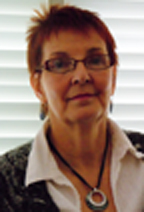
I am a mother who lost her infant son to adoption in 1970. If you had known me before I met and married my son's father, you would have thought of me as "the girl next door" raised in a Catholic home, taught in Catholic schools for 12 years, and guarded by my parents. You'd have been surprised at how terrible my life became in a very short period of time. Life is fragile; one wrong turn can be devastating. That wrong turn took place when I met and married the father of my son in February 1969. By the time I was able to break from him permanently in 1974, he had taken everyone and everything that I loved from me. I had seen and experienced so much of his cruelty and violence that I felt I would lose my mind. He died in 1984 as violently as he lived, with four bullets to the front, and his killers were never apprehended. When I approached the Childrens Aid Society in April 1970, I was in my second trimester. I was attempting to run away from violence and hoped to find shelter in a home for unwed mothers. In my first trimester and throughout my pregnancy, I was continuously tormented, threatened, physically and mentally abused. The caseworker told me that the law protects the right of the husband/father to have access to the mother. Our safety was not covered by the law. In 1970 there were no shelters or laws to protect victims of domestic violence. I believed my child would never be safe unless he was raised by another family. I had no medical insurance. My obstetrician abandoned me when I didn't have the upfront fee for delivery services. I had no legal counsel. I had no psychological counseling on issues of post-adoption grief. I was assured that there were parents waiting to bring my baby home. I was given Demerol during labor, and believe I signed papers in a haze and under duress in the sense that I had no other choice to protect my baby. I held my baby only once and believed I would never see him again. My husband made me swear not to tell anyone about the adoption and to say my baby was stillborn. Several months later, I received word that the final papers were to be signed and that I would have one more chance to see my son on the day he was to be transferred to the adoptive parents. I was never promised confidentiality by the agency. I never got over losing my son. I never was able to grieve our loss. I developed Post Traumatic Stress Disorder, depression, anxiety, and fibromyalgia (chronic pain and fatigue). I have been in and out of psychotherapy since 1974 and was hospitalized for PTSD and depression in 1990, where I was able to begin to address the effects of adoption loss and domestic violence. I suffered bouts of depression every year on the anniversary of my loss. My son has told me that he spent the first several months of his life in the hospital for respiratory distress, a symptom common in infants torn from their natural mothers. He has had asthma thoughout his life which he senses derives from his loss. I have worked as an advocate for victims of domestic violence and as a safe homes coordinator for Dutchess County YWCA. I have also been a safe home provider. I have worked as a foster parent in Essex County, and co-facilitated a program on Domestic Violence with North Country Council on Alcoholism and Substance Abuse at Moriah Shock Incarceration Correctional Facility. I have worked as an addictions counselor at Moriah Shock ICF and Adirondack Correctional Facility, retiring in 2006. I first registered with an adoption registry, The Adoptee Liberty Movement Association in 1984, with the hope that someday my son would seek me out. It was not until 2005 that I learned of the New York State Adoption Registry and Adoption Crossroads. With the support received from Adoption Crossroads, I continued therapy for post adoption issues and issues that may be presented in the event of a reunion. Once I felt sufficiently prepared, I reached out to an investigator who found my son in less than two weeks, and confirmed his adoptive name, current address and phone number. Thirty-nine years had passed. 3,000 miles lay between us. From July to October 2009 we had numerous telephone conversations, and text messages and emails passed between us. In October 2009, his half-sister and I flew out to the west coast to meet him, and spent 3 days visiting, touring and conversing long into the nights. Reunion has been an amazing journey, one which we have nurtured responsibly. After our first visit, he asked me to build a bridge to his paternal family. I accepted the challenge and met with a large group in November 2009. the blessing of reunion spread to them as well. In February 2010, on the occasion of his paternal grandfather's passing, he served as a pallbearer for the military funeral. We were guests, and met his half-brother, aunts, uncles, cousins and second cousins at the wake and family dinner that followed the funeral. This was a great celebration of loss and rebirth. Before returning to the west coast, he met his 90-year-old maternal grandmother and several other maternal family members. In June, he flew east again for a week-long visit. We toured his growing up days and places on Long Island. He and his half-sister were finally able to spend an entire day together. We drove into Brooklyn to meet my brother. We visited the New York City Public Library History and Genealogy department to pull the New York City Record of Births for 1970. In it we found the one line that proved his given name at birth, mother's maiden name, father's given name, county of birth and certificate number. My son filmed and recorded this event. He stayed in the city to visit with his adoptive mother who had flown in from Florida to visit old friends. I took the train back out to Long Island. The following evening, his adoptive mother graced us with a visit at my sister's home. It was a glad occasion for me to meet the woman who mothered my son when I was not able to. We left Long Island and drove out to Otsego county to meet family there. He took me to meet a favorite aunt and cousins who wanted to meet me. In all my son met 42 blood relatives in the year following our reunion and it has been a blessing and joy to us all. Last winter, I drove cross-country to spend three months living near my son. The experience was rewarding and we are both writing in the hope that we will publish a memoir of our individual and shared experiences. Still my son can not access an original birth record. Sealing that record hasn't stopped us from seeking or searching for truth. Sealed records have outlived the usefulness they may have had in a different era. And computer technology is such that a trained professional can locate adoptees or birthparents using the computer technology available now. It is time to undo the laws that deprive adoptees the right to their record of birth solely because of their status as adoptees. Letter to the Editor Adirondeck Daily Enterprise from natural mother, Virginia Slater: http://www.adirondackdailyenterprise.com/page/content.detail/id/529328/Adoptees-should-be-able-to-get-birth-certificates.html?nav=5005 The Numbers of Birthmothers Wanting NO Contact from their Adopted Children by Claudia Corrigan Sheeley 
The simple fact is that it is less than 1% of all relinquishing mothers desire to never set eyes on their children again. In truth, the average percentage of American Birthmothers who do not desire contact is 0.993471. How do i know this? Well, I just sat around and collected what statistical information I could on the four US states that enacted original birth certificate legislation: Maine, Oregon, New Hampshire and Alabama. Alaska and Kansas, while they never sealed their OBC's upon adoption, haven't ever collected the statistical data either, so they are no help! Look, I made a factual adoption statistics chart:
Less than 1% That's the facts, man. Less than 1% of Birthmothers in the US desire to keep their adult children at arm's length. So out of the 6 to 8 million adult adoptees in the United States, we can assume that there are say 6 million birthmothers and .993471% want to be left alone. That comes to 39,174 birthmothers. So because of 40 thousand mothers another 6 to 8 million people and their children and their children's children get denied medical histories, get denied their identity, get denied their truth...for the good of 40,000? Read more of Claudia Corrigan Sheeley's commentary on bogus privacy and confidentiality and how it humiliates and frustrates New York adoptees: Maternity Home Experience by Carole L. Whitehead Lakeview Home for Jewish Unwed Mothers Louise Wise Services
My incarceration was served at the Lakeview Home for Jewish Unwed Mothers on Staten Island, a subsidiary of Louise Wise Adoption Services, New York City. I began serving time in January 1963; my sentence was commuted mid-Spring of the same year. It was one of the most frightening experiences of my life. Like most mothers who relinquished, the memories of that time were given over to repression to survive with one's sanity intact. The memories do come forward in bits and pieces...from time to time. NY Times Blog: Reunion, by author, Lynn Lauber. Lauber says, During those years a birth mother was considered not much more than a wayward slattern who not only didn't deserve a child, but any rights or consideration. May 5, 2009 From Queensland Australia The first ever apology to
natural mothers for coercion, and acknowledgement of ill treatment while pregnant women
were confined in the Royal Brisbane Hospital Video: State Government in Western Australia Apology to natural mothers for adoption scheme.
Not only was there an apology but plans for a monument to unwed mothers and the families separated by adoption that took place from the 1940s-1980s. December 2011 Catholic Church in Australia apologizes for forced adoptions: Western Australia where parliment apologized for forced adoptions in October 2011. First apology ever from an Australian government: Review of Rodrigo Garcia's film Mother and Child by Rex Reed News article from the UK: Eight Women share incredibly moving stories. 2007 Video - Protesters want an end to forced adoption practices still occurring in the UK. BBC News Video Australian Senate Inquiry into forced adoptions. Australian Senate inquiry into forced adoptions -- The senate is expected to decide on this important issue by the end of this month. Was the federal government involved in forcing mothers to surrender and should mothers receive reparations? Mothers Rights Groups on Facebook Canada's Stolen Babies & Stolen Motherhood Forced Adoption Senate Inquiry in Australia Natural Mothers Voice
Natural Parents Bill of Rights We have the right to dignity and respect. We have the right to know if our surrendered child is alive and well. We have the right to possess, surrender, relinquishment, consent to adopt, termination of parental rights and hospital records pertaining to ourselves and our child. We have the right and obligation to provide full knowledge to our child of their origins, ethnic and religious backgrounds,their original name and any pertinent medical and social details. We have the right to personal contact with our adult child, as all other humans. We have the right to update our medical and social history for that child. We have the right to live without guilt toward our child. We have the right to give back or let go of any shame caused by our pregnancy and or child's adoption. We have the right to love our child as all other parents, We have the right and obligation to show our feelings. We have the right to become whole and complete people. We have the right and obligation not to violate the dignity of all people in the adoption circle and to carry our message to all birth parents who still suffer.
Barbara Pasternak marched FOUR TIMES from New York to Washington for Open Records! SUPPORT GROUPS: Sunflower Online Support Group for Birth Mothers: http://www.bmom.net Manhattan
Birthparents Support Group:
http://manhattanbirthparents.intuitwebsites.com/ Birthparents Support Network of White Plains email Gail: Gad56@aol.com Concerned United Birthparents National Headquarters, San Diego, CA: http://www.cubirthparents.org Empty
Arms Online Support for mothers who surrendered their one and only child, email Joyce
Ames: emptyarms2003@aol.com or see her website
at: http://www.emptyarms.org/ POETRY Gloria L. Adams, a 57 year old woman who surrendered her only son in 1968. He found her in 1999 and she found herself overwhelmed with grief, loss, and joy. Labels I am Mother. I yearn to see, to touch, and
to hug I am Grandmother without a
name. He does not know how he came
to be, Labels pre-judge and isolate,
by Sylvia Epstein Child of my
body Why for so
long were Years of
love, of anguish Constant
thoughts of love Possibility
of death Now I found
you Lies I was
told For My Son, "Terry Michael Bahr" by Joyce Bahr Words for a Flamenco Dance, Soleares My Sorrow is Great. I have spent many years
reaching out Repression has kept my spirit
down. A Birthmother's Story
I was twenty-one, a student at
DeKalb College in Clarkston, Georgia when I discovered I was two months pregnant in July,
1966. My parents were horrified and it was the first and last time I saw my father cry. I
was told that I had disgraced the family name and that I could either get an abortion or
give up the child for adoption because they weren't going to have my "sin"
revealed to the rest of the family or more importantly to their friends. |
[Home] [Marches/Protests] [Bill Summary] [People Speak] [More Info] [Plays/Films] [Articles] [NYSAR Board] [History of Unwed Mothers] [Issues of Mothers] [Links] |
